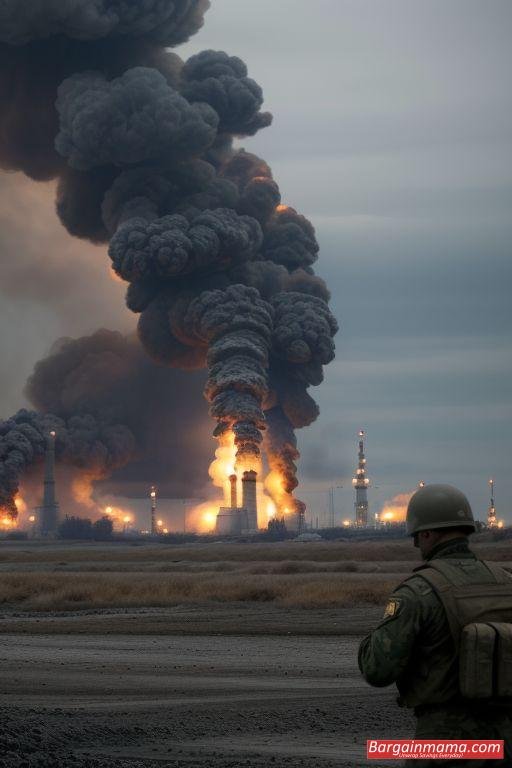Ukraine has increased its attacks on Russian oil refineries in recent months in an effort to severely damage Russia’s export earnings and obstruct the flow of gasoline to President Vladimir Putin’s soldiers. According to RIA state news agency via Reuters, the most recent incident featured oil refinery in Russia’s Kaluga area being set on fire by Ukrainian drones. In addition, the head of Russia’s Republic of Bashkortostan, Radiy Khabirov, claims that an attack occurred earlier this week on Gazprom’s Neftekhim Salavat oil refinery, one of the biggest in the country.

The Biden administration has criticized these strategies, nevertheless. In April, Defense Secretary Lloyd Austin issued a warning, stating that Ukraine should instead concentrate on military targets as these assaults have the potential to upset the world oil markets. Despite this position, some analysts contend that Ukraine’s approach is legitimate and might not have the disastrous outcomes the US fears.
Sam Winter-Levy, a doctorate candidate in political science at Princeton University, Lauri Myllyvirta, principal analyst at the Centre for Research on Energy and Clean Air, and Michael Liebreich, creator of Bloomberg New Energy Finance, presented their viewpoints in Foreign Affairs magazine. They argue that strikes by the Ukrainians on Russian refining plants won’t inevitably cause oil prices throughout the world to soar. They claim that these attacks mostly damage Russia’s ability to create refined goods, such as gasoline, at the expense of its ability to obtain and export large amounts of crude oil.
In fact, the experts argue that Russia’s diminished capability for refining crude oil may compel the nation to export more of it, thereby bringing down world prices. They also point out that the strikes have caused Russia’s domestic refined product prices to skyrocket, which is consistent with the goals of the Western economic sanctions. Russia has been able to evade Western attempts to reduce its energy income, including sanctions like outlawing the purchase of Russian gas and oil and placing price ceilings on Russian crude oil.

In an effort to lessen the effects of Western sanctions, Russia has switched the majority of its oil exports to China and India, according to Deputy Prime Minister Alexander Novak’s announcement last year. According to Bloomberg reports, Russia’s oil income more than quadrupled in April over the prior year, demonstrating the country’s ability to modify its operations. Furthermore, as Reuters noted in April, Russia showed that it could quickly restore important refinery facilities damaged by Ukrainian attacks, reducing the effect on refining capacity.
Ukraine has continued to assault refining installations in spite of these obstacles, however it is unclear how much of an impact they will have on Russia’s efforts to rebuild itself. The protracted confrontation between Russia and Ukraine highlights the complexity of geopolitical tensions and the many tactics used by each side. The success of Ukrainian strategies and the reactions of international players will continue to influence how the energy landscape and international relations are shaped as the crisis develops.



